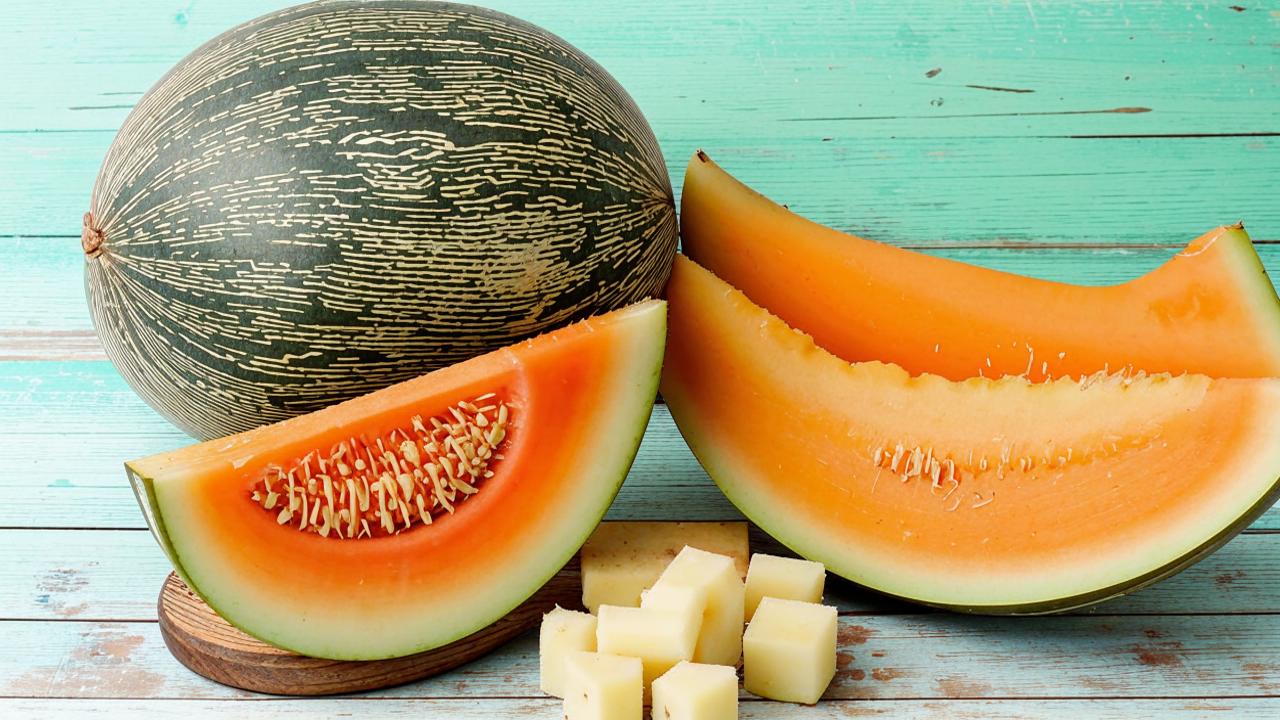
Nutritionist, endocrinologist, nutritionist, therapist, ozone therapist, IV therapist
“Melon is a juicy and sweet fruit that is a source of vitamins, minerals and antioxidants.”
What is the usefulness of melon?
In the composition of this product is a large number of vitamins and minerals.
Melon is rich in vitamin C. This water-soluble substance is known for its positive effect on immunity. It strengthens the immune system, helps to increase the body’s resistance to infections and viruses.
It also works as a powerful antioxidant, improves skin condition, makes it firm and healthy. Protects cells from free radicals, preventing oxidative stress and aging. Participates in the synthesis of collagen. Vitamin C helps the body better absorb iron from plant and animal sources.
This fruit is a treasure trove of B vitamins. It contains B1 (thiamine), B2 (riboflavin), B3 (niacin), B5 (pantothenic acid), B6 (pyridoxine) and B9 (folic acid). They all play an important role in metabolism and cell performance in the body.

Folic acid in melon supports the health of the nervous system. Participates in the synthesis of neurotransmitters necessary for the transmission of nerve impulses. Participates in the synthesis of DNA and RNA, necessary for proper cell division and growth of fetal tissues. Therefore, the product can be added to the diet of pregnant women and those women who plan to become moms.
Melon also has minerals that are catalysts for a huge number of biochemical processes. For example, potassium is essential for maintaining normal fluid levels within cells and water-electrolyte balance throughout the body, and magnesium is essential for the proper functioning of the cardiovascular and nervous systems.
The seeds and rind contain silicon. It is important for maintaining healthy bones, joints, skin and hair.
The fruit also contains beta-carotene, lutein, zeaxanthin. They help to preserve the youthfulness of the skin and contribute to an even tan. At the same time, the substances protect skin cells from the effects of harmful environmental factors and free radicals inside the body.
How much melon can I eat per day?
Melon contains 7.4 grams of carbohydrates (per 100 grams), which are simple sugars: glucose, fructose and sucrose. They are universal sources of energy. However, in their excess, insulin resistance can occur, which can lead to other disorders of carbohydrate metabolism, such as obesity, diabetes mellitus.
It is recommended to eat no more than 200 grams of melon a day: preferably in the morning or afternoon 15 minutes after the main meal. This will help to avoid a sharp jump in blood glucose.

Kontraindikationer
Particularly attentive to the amount of melon eaten by people who monitor blood glucose levels or suffer from diabetes. The fruit contains a lot of water – almost 90%. However, the simple sugars in it are too easily digested because of this. The glycemic index of the berry is 65 units. The more mature the melon, the higher this index.
The fruit also contains soluble fiber. These fibers are completely broken down and are a nutritious environment for microbiota living in the intestines. Excessive consumption of melon can provoke flatulence, bloating, loose stools.
Therefore, limit portions should be limited to those who suffer from chronic inflammatory diseases of the gastrointestinal tract (GI). Do not eat a lot and children, as their GI tract is just forming. For them it is a heavy food.
How to choose the right melon?
When choosing a fruit, you should pay attention to several key points.
1. Odor
A ripe fruit has a pleasant sweet and rich aroma. The absence of odor should be alarming.
2. Appearance
Choose a berry with a bright, uniform color without dark marks, damage and microcracks. The rind should be firm and matte. A small round light spot is allowed. This indicates that the melon was lying on the ground and was deprived of sunlight. A thin and peeling rind indicates that the fruit is spoiled.

3. Sound
When you tap the melon, you should hear a thud, which indicates ripeness and juiciness.
4. Weight
A melon should be heavier than its size. That is, if at a glance the fruit weighs 4 kilograms, the scales should show 5 or more kilograms. This indicates a high juice content.
5. Stalk
The stalk of the melon should be dry and thick.
6. Firmness
To determine the firmness of the fruit, hold it in your hands and press it lightly. It should spring back a little. It is worth refusing to buy if the melon is as hard as a watermelon. This indicates immaturity. If there are finger marks after pressing, the berry is overripe.
How to properly store a melon?
After buying a whole melon should be stored in a dry, dark, cool place for no more than a week. Ideally – in a cellar or basement. Cut into pieces, the fruit should be kept in the refrigerator in a tightly closed container for no more than two days.





